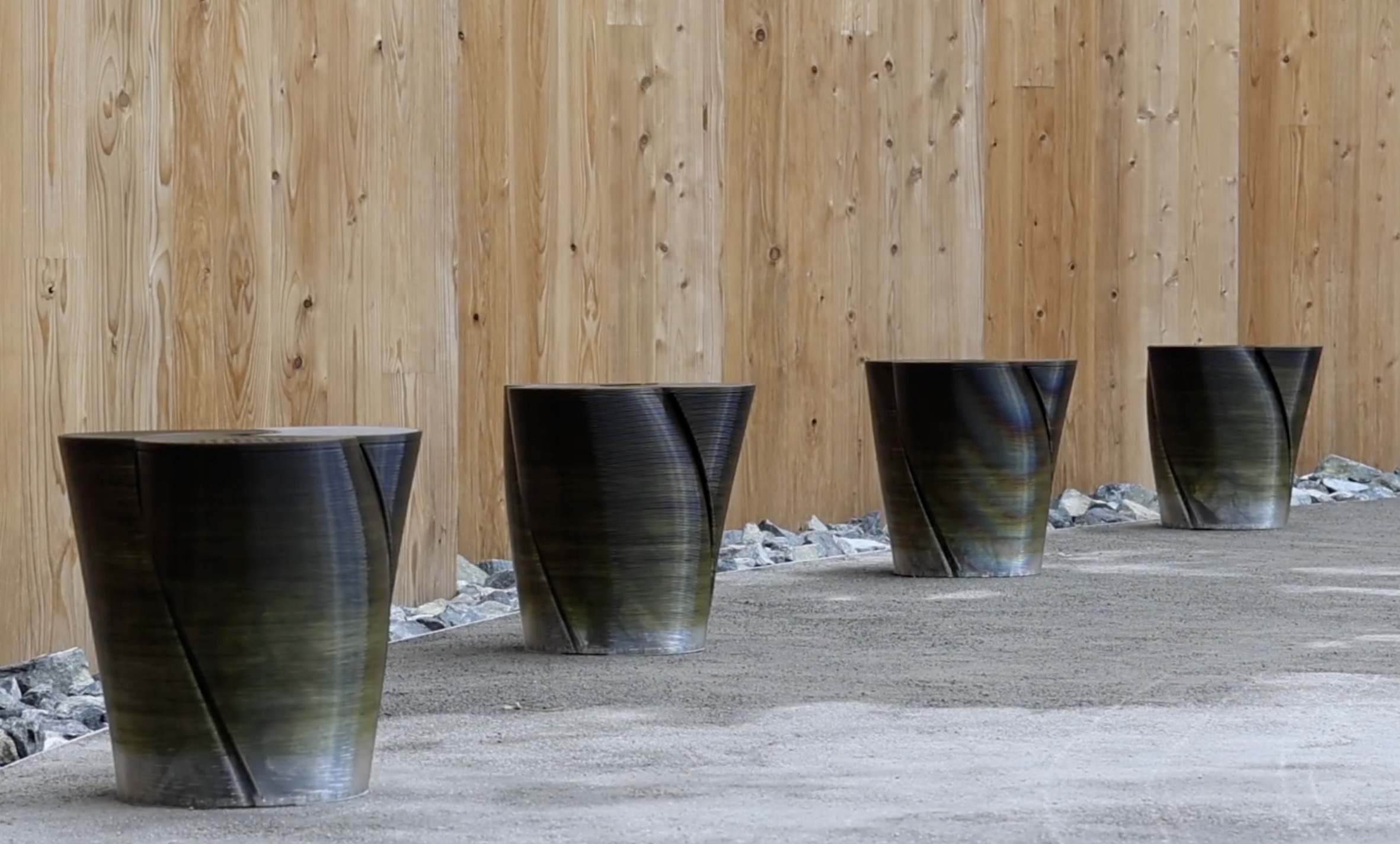Bio-based Engineering Plastic DURABIO Adopted for 3D-Printed Stools, Installed within the Japan Pavilion at Expo 2025
April 16, 2025
Mitsubishi Chemical Corporation (Head Office: Chiyoda-ku, Tokyo; President: Manabu Chikumoto; “the Company”) hereby announces that its bio-based engineering plastic DURABIOTM has been selected as a base material for 3D-printed “algae stools” by the “Sokaku” Co-Creation Project, a Major Partner of the Japan Pavilion for Expo 2025 Osaka, Kansai, Japan, which opened on April 13, 2025. Made from a material that is a blend of algae and DURABIO™, the stool features a sleek design and gradient color patterns.

DURABIO™ is a bioengineering plastic derived mainly from plant-based isosorbide. Compared with conventional polycarbonate resin, DURABIO™ offers high transparency and excellent optical properties. Unlike other plant-derived polymers, it has excellent durability and weathering resistance. Its well-balanced mechanical properties make it highly compatible with 3D printers, and it is increasingly adopted as a material in the application of 3D printing. DURABIO™ was adopted for the algae stools in recognition of its status as a domestically produced biopolymer manufactured at the Company’s Kyushu-Fukuoka Plant and its track record of being used for interior applications, as well as for its superior features.
This stool is the result of a roughly yearlong collaboration among prominent researchers. Hiroya Tanaka, director of the Digital Manufacturing and Design Research Center for Emergent Circularity at the Keio University Global Research Institute (KGRI), took the lead in the basic design (planning and design) while Project Assistant Professor Ryohei Yuasa from the same was responsible for the detailed design (implementation design). Akihito Takahashi, a researcher at the Keio Research Institute at SFC and an employee of Hoden Seimitsu Kako Kenkyusho Co., Ltd., was engaged in material design and color tone adjustment. Approximately 50 of the algae stools will be installed within the Japan Pavilion during Expo 2025.
The Company remains committed to offering high value-added products and achieving a sustainable society through its DURABIO™ business.

DURABIO™ is a bioengineering plastic derived mainly from plant-based isosorbide. Compared with conventional polycarbonate resin, DURABIO™ offers high transparency and excellent optical properties. Unlike other plant-derived polymers, it has excellent durability and weathering resistance. Its well-balanced mechanical properties make it highly compatible with 3D printers, and it is increasingly adopted as a material in the application of 3D printing. DURABIO™ was adopted for the algae stools in recognition of its status as a domestically produced biopolymer manufactured at the Company’s Kyushu-Fukuoka Plant and its track record of being used for interior applications, as well as for its superior features.
This stool is the result of a roughly yearlong collaboration among prominent researchers. Hiroya Tanaka, director of the Digital Manufacturing and Design Research Center for Emergent Circularity at the Keio University Global Research Institute (KGRI), took the lead in the basic design (planning and design) while Project Assistant Professor Ryohei Yuasa from the same was responsible for the detailed design (implementation design). Akihito Takahashi, a researcher at the Keio Research Institute at SFC and an employee of Hoden Seimitsu Kako Kenkyusho Co., Ltd., was engaged in material design and color tone adjustment. Approximately 50 of the algae stools will be installed within the Japan Pavilion during Expo 2025.
The Company remains committed to offering high value-added products and achieving a sustainable society through its DURABIO™ business.
